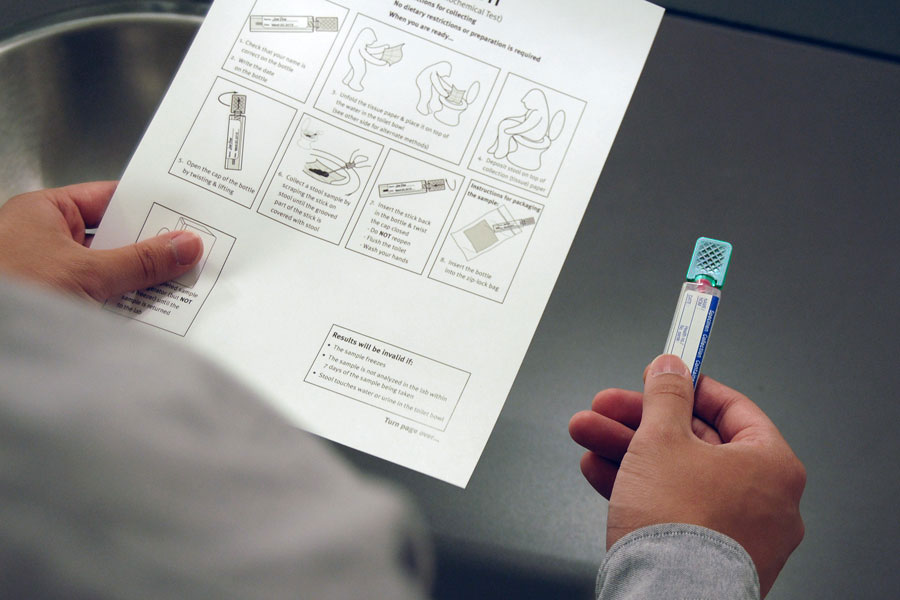March is National Colon Cancer Awareness month, a disease that will affect 1 in 6 British Columbians and is the second leading cause of cancer deaths in Canada. In 2020, an estimated 3,565 British Columbians were newly diagnosed with colon cancer. Sean was one of those people.
“Colon cancer was not on my radar. I had no family history of cancer whatsoever. If I had ignored my doctor’s advice to screen for colon cancer,” says 50-year-old Sean, “the outcome could have been very different.” At the time of screening, Sean was not experiencing any symptoms but because he had just turned 50 years old, his family doctor told him it was time to take the FIT.
Colon cancer is one of the most common cancers to affect both men and women in B.C. When detected at its earliest stage, the chance of survival is over 90 per cent. BC Cancer provides eligible British Columbians a user-friendly at-home screening test, known as a FIT, which can be done safely at home. The test detects blood in stool which can be a sign of pre-cancer. The results signal whether a person needs a colonoscopy to investigate further.
 Instructions for the FIT, the at-home colon screening test
Instructions for the FIT, the at-home colon screening test
“Regular screening offers the best chance of detecting the early signs of cancer,” says Dr. Jennifer Telford, medical director, BC Cancer Colon Screening Program. “In its early stages, there are no symptoms for colorectal cancer - which is why screening is so important. Screening can detect the early warning signs of colon cancer and save your life.”
“It’s just one of those things that needs to be done,” says Sean about taking the FIT. “Lots of things are uncomfortable, but I imagine if my colon cancer wasn’t caught at Stage 1 there would have been a lot more uncomfortable moments. Thankfully my cancer was caught so early it was removed with surgery alone and I didn’t need further treatment.”
Colon screening is recommended for people ages 50 to 74. Colon cancer risk increases with age with 80 per cent of colon cancer cases being diagnosed in people over 50. The key is to do it early. As a cancer survivor, Sean encourages British Columbians not to delay taking the FIT as soon as they become eligible and maintain regular FIT screening every two years.
“I was doing a good job of being healthy. I exercised regularly and maintained a healthy diet. I have to be vigilant with my health because it’s important to be around for my kids; for my family.”
This year, an estimated 3,630 people in B.C. will be newly diagnosed with colon cancer.
Fecal Immunochemical Test (FIT)
FIT kits are available in labs in B.C., primary care providers can provide an eligible person with a requisition to pick up a free FIT kit from the lab. The test is done at home and then returned to the lab. An abnormal FIT would result in a referral to the local regional health authority for colonoscopy and a conclusive diagnosis.
Talk to your health provider
Colon cancer symptoms can include blood in your stool, abdominal pain, change in bowel habits, or unexplained weight loss. If you are experiencing these symptoms, talk to your health care provider about a referral for diagnostic testing to determine the cause of these symptoms.
For more information about screening, visit ScreeningBC.ca/colon.
